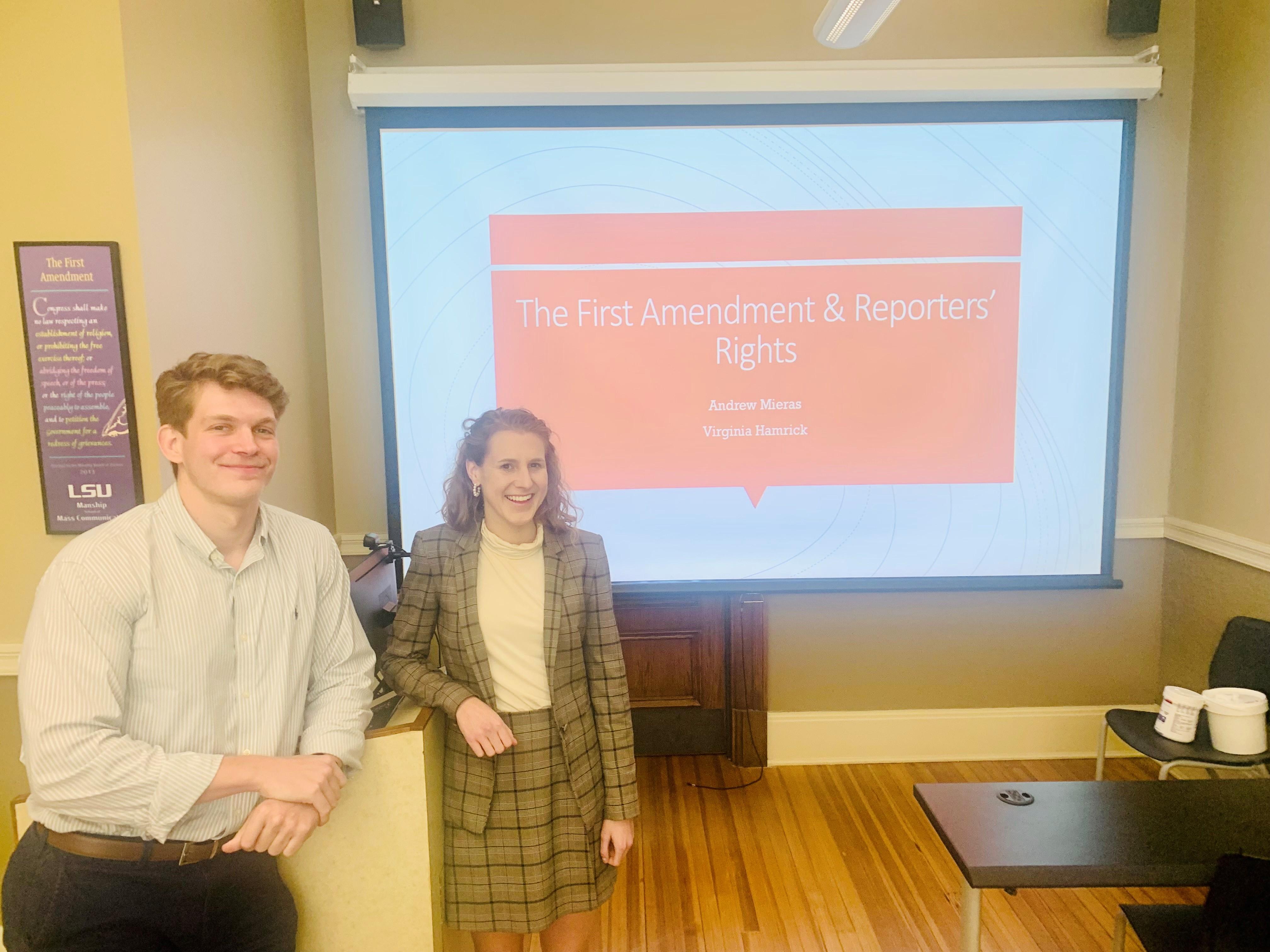First Amendment Clinic receives major grant to aid local journalists
Tulane Law School’s First Amendment Clinic will expand its staff and its impact in educating students and aiding local journalists thanks to a $375,000 grant from the Legal Clinic Fund for Local News.
The clinic defends core First Amendment principles through legal representation of members of the press and others while educating students on First Amendment values and principles. Since its 2020 launch, the clinic has successfully handled dozens of legal matters including public speech, protest and dissent, government retaliation against speakers, and censorship of constituents, public school students and government employees.
Clinic students provide clients with pre-litigation counseling and advice, and represent clients in local, state, and federal courts. The new grant will support the hiring of a full-time lawyer-fellow on the clinic’s staff focused on expanding journalists’ access to public records needed for their reporting.
The grant comes at a critical time for journalists as they face scarce resources and intense public skepticism.
The First Amendment Clinic is directed by Tulane Professor Katie Schwartzmann, a Tulane law graduate who has handled litigation involving freedom of speech, religion, separation of church and state, discrimination, and other complex constitutional rights issues. Prior to her current role, she served as the legal director at the American Civil Liberties Union of Louisiana, the managing director of the Southern Poverty Law Center’s Louisiana office, and as a founder of the MacArthur Justice Center in Louisiana.
During a “listening tour” Schwartzmann conducted in the clinic’s early days, she was told that local reporters need legal help to access public records essential to their investigative work. Louisiana has a strong public records law, with few exemptions and strong enforcement mechanisms. But enforcing the law requires filing suit in state court, which is a substantial barrier for local, small-market journalists with limited resources. There are very few media lawyers in the state.
“When journalists cannot get documents or access information, stories go untold,” Schwartzmann said. “Civic dialogue and democracy suffer, and the public cannot hold its government accountable. We are thankful for the Legal Clinic Fund for Local News for supporting this important work.”
The grant will allow the clinic to hire one full-time Louisiana-licensed lawyer in a fellowship role. The “Sunshine Fellow” will lead public records litigation, help conduct intake for regional journalists, mentor students, and negotiate and litigate other matters supporting local media. The fellow will also lead Louisiana-specific “Know Your Rights” presentations to journalists around the state. Sunshine laws are regulations requiring transparency and disclosure in government or business, dictating everything from open records laws to advance notice of public meetings.
The clinic expects the grant to have far-reaching impact. It will provide greater access to legal counsel and the courts for members of Louisiana’s press, increase access to information for the public and strengthen public awareness of the role of the free press in challenging government secrecy and overreach.
“In two short years, Tulane’s First Amendment Clinic has become a powerhouse in promoting press freedoms and other First Amendment values throughout the Gulf Coast region,” said Tulane Law Dean David Meyer. “This generous grant will critically extend the clinic’s impact by enabling local journalists to get access to the information and records they need to hold government accountable. We are very grateful to the Legal Clinic Fund for Local News and look forward to the clinic’s continued impact for students and for society.”
The Legal Clinic Fund for Local News is a collaborative fund to support the growth and sustainability of legal clinics across the United States that seek to advance and defend first amendment rights, media freedom, and transparency in their communities and nationally. The Fund is generously supported by Democracy Fund, The Klarman Family Foundation and Solidarity Giving. The Miami Foundation serves as fiscal sponsor for the Fund.
To learn more about the First Amendment clinic or to request assistance, go here.

